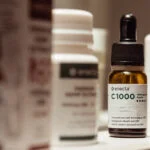Heroin Addiction
Heroin is a powerfully addictive substance with the ability to draw users into a life of dependency. It is derived from morphine which is naturally found in the seeds of the opium poppy plant – however in this instance, natural does not equate to safety.
Rapid and fast-acting, heroin delivers an instant rush when injected, snorted or smoked. Many people describe the effect as an extreme release of tension mimicking a sexual orgasm, and the brain begins to see heroin as an essential chemical that is required for daily functioning.
The chemical structure of morphine is similar to that of endorphins, a natural pain-relieving chemical released by the brain that causes feelings of euphoria. Morphine binds to the brain’s endorphin receptors, causing a range of intensely pleasurable sensations that can be extremely addictive. [1]
As the body quickly builds up a tolerance to this substance, requiring a higher dosage of heroin and more frequent ingestion, many heroin users speak of ‘chasing the high’ as they continuously attempt to recreate the original effect experienced when they initially discovered heroin.
What are the laws around heroin?
As Class A controlled substance, it is illegal to possess, manufacture, use or sell heroin in the UK.
If you are found guilty of possessing heroin you can be sentenced to up to seven years in prison and/or an unlimited fine. The penalties for the supply and production of this substance are even more severe, with the possibility of up to life in prison and/or an unlimited fine. [2]
The extent of the sentence and fine depend on a number of factors including the amount of heroin found, your criminal history and any intent to supply.
There are no circumstances in which it is legal to possess or sell heroin. It has no proven medical benefits and can not be prescribed by a doctor, however, it is possible to be prescribed methadone as part of a recovery treatment programme.
Who is most at risk of developing a heroin addiction?
Anyone can become addicted to heroin. The addictive properties of this substance are so powerful that even a single dose can spark the beginning of a severe and detrimental dependency.
However, some people are more at risk than others due to factors such as lifestyle, genetics and mental health disorders. These risk factors include:
- A history of depression or anxiety
- Frequent exposure to friends and family members who use heroin or other drugs
- A history of addiction, or family members who have suffered from addiction
- Difficulty making friends and maintaining relationships
- Low self-esteem
- Exposure to drugs and alcohol at a young age
- Poor academic or work performance, including a lack of employment or education
- Personal reaction to the effects of heroin – some people may enjoy the sensation more than others
These risk factors are not set in stone. It is possible for an individual to possess all of the above characteristics and still avoid developing a heroin addiction – there is no way to conclusively predict the likelihood of dependency.
Can I die from heroin addiction?
Heroin is an extremely dangerous substance with the potential to cause serious health issues and even death. In fact, the number of heroin-related deaths more than doubled in England and Wales between 2012 and 2015. [3]
Many instances of death involving heroin are due to polydrug use, in which an individual uses heroin concurrently alongside another substance such as alcohol. Combining two depressives can slow down the central nervous system in such a way that it ceases to function, resulting in death if not promptly treated.
This explains the low levels of morphine that are often found in the system of a deceased heroin user, as the amount of heroin used did not result in death – instead, it was the combination of two or more depressive substances. [4]
Another factor is the body’s ability to build a tolerance to heroin, requiring larger dosages over time in order to achieve the same effects. This tolerance is quickly diminished when the individual attempts to reduce or completely stop their heroin intake. As a result, a relapse during a period of recovery is highly likely to result in an overdose as the body is now unable to process the same amount of heroin.
What are the signs and symptoms of heroin addiction?
Due to the addictive nature of this substance, it is very rare to come across a recreational heroin user. As a result, there are a number of physical, psychological and behaviour symptoms that are apparent when an individual is dealing with heroin addiction.
It is very difficult to restrict heroin usage to the occasional social event. Most people either do not use heroin at all or are extremely dependent on this substance.
If the individual has attempted to reduce or completely stop their heroin use and have been unable to, or continue to use heroin despite experiencing negative consequences, they are highly likely to be suffering from physical and psychological addiction.
Physical symptoms of heroin addiction include:
- Poor grooming and personal hygiene
- Appearing drowsy, disoriented and confused
- Needle marks or scabs
- Slurring of words
- Sudden and extreme weight loss
- Flu-like symptoms including fever, runny nose and body chills
- Frequent respiratory infections
Psychological symptoms of heroin addiction include:
- Being unable to function without regular ingestion of heroin
- Memory loss
- Depression
- Poor decision-making skills
- Lack of judgement
- Difficulty concentrating
- Mood swings
- Aggressiveness and agitation
Behavioural symptoms of heroin addiction include:
- Possessing paraphernalia including needles, syringes, burnt spoons and foil wrappers
- Becoming secretive and withdrawn
- Increasing levels of deceit and dishonesty
- Denying that there is a problem when confronted
- Poor performance at school or work
- Suddenly spending time with a new group of friends
- Borrowing or stealing money
- Attempting to cover the arms and legs even in warm weather
If you are concerned that you or someone you care about is suffering from an addiction to heroin, it is important to seek medical guidance in a timely manner. There are countless treatment programmes and rehabilitation centres that specialise in heroin addiction, and our team at OK Rehab are available to put you in touch with a recovery plan that works for you.
What are the long-term effects of heroin addiction?
While it is possible to recover from long-term heroin addiction, the effects that result from abusing this substance over a long period of time can be detrimental and life-limiting.
The most severe consequence is the increased risk of overdose, particularly if heroin is used in combination with alcohol or other substances. The rate of HIV infection is also a cause for concern in heroin users – in 2019 there were approximately 105,200 people in the UK with a diagnosis of HIV. Of these, 1,872 had developed HIV as a direct result of injecting substances such as heroin. [5]
Other long-term effects of heroin addiction include:
- Greater risk of contracting hepatitis C
- Liver and kidney disease
- Arthritis
- Skin infections and abscesses
- Damaged and collapsed veins
- Infertility and increased risk of miscarriage in women
- Permanent changes to the brain
- Financial issues, including a lack of savings and debts
- Strained relationships with friends, family and colleagues
- Lack of employment
- Legal issues, including prison sentences and a criminal record
Recovering from a heroin addiction
Due to the heightened risk of relapse and potential overdose resulting from the body’s rapid diminishment of tolerance to this substance, it is recommended that anyone attempting to recover from heroin addiction should do so under the care and guidance of medical professionals.
The most effective form of treatment for heroin addiction is a personalised recovery programme administered within a rehabilitation centre.
The first stage of treatment involves physical detoxification, during which the individual is slowly weaned off the substance over a period of time. They will usually be offered a heroin substitution such as methadone, a safer and less addictive substance that is medically prescribed and closely monitored.
This can help to alleviate the more unpleasant withdrawal symptoms throughout the recovery process, and over time the dosage of the heroin substitute will be reduced until the individual is free from both substances.
Once physical recovery is complete, the psychological aspect of treatment will begin. Within a treatment programme the individual will be offered a range of therapy treatments that best suit their needs – these may include cognitive behavioural therapy, dialectical behaviour therapy, group therapy or a combination of multiple treatment methods.
A trained and experienced therapist will work on replacing detrimental mindsets and behavioural patterns with healthy coping strategies, while simultaneously pinpointing specific triggers and past experiences that may have lead to the development of heroin addiction.
Long-term recovery is only possible with the implementation of an aftercare plan. This can involve regular NA or 12 Step meetings, ongoing counselling and effective strategies to deal with the stresses and turbulence of daily life. These efforts combined with a strong support system can result in a healthy, fulfilled life free from the detrimental and life-threatening effects of heroin addiction.
References
[1] https://www.ncbi.nlm.nih.gov/pmc/articles/PMC2851054/
[2] https://www.gov.uk/penalties-drug-possession-dealing
[4] https://ndarc.med.unsw.edu.au/blog/three-persistent-myths-about-heroin-use-and-overdose-deaths
[5] https://www.nat.org.uk/about-hiv/hiv-statistics






